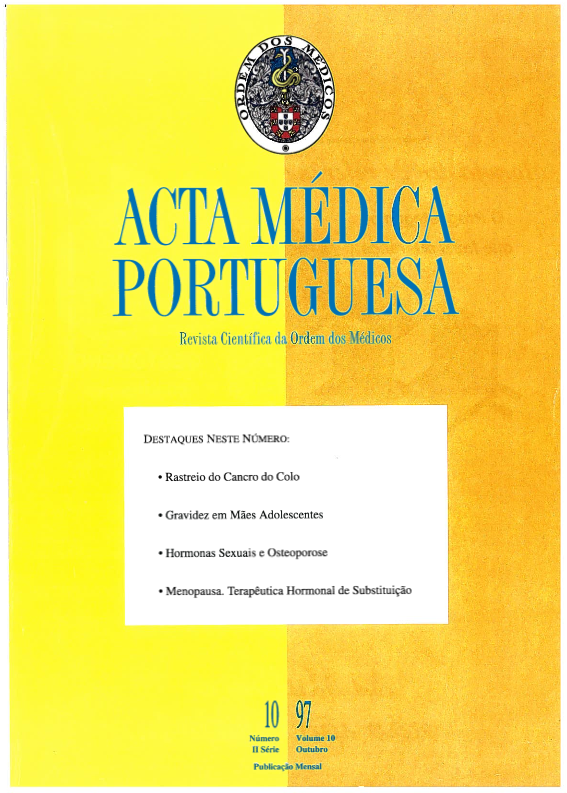Terapêutica hormonal de subtituição e cancro da mama. 2. A mulher com cancro da mama deve receber terapêutica hormonal de substituição?
DOI:
https://doi.org/10.20344/amp.2472Resumo
The common menopausal symptoms of a growing number of women treated for breast cancer poses difficult therapeutic decisions to the Gynaecologist. It has been extensively demonstrated that hormonal replacement therapy (HRT) is the most effective treatment of such symptoms, as well as protecting women from cardiovascular disease, osteoporosis and increased mortality related to these disorders. However, breast cancer is classically considered a contraindication to HRT. In this paper we review the existing evidence regarding the influence of HRT on breast cancer. A computerized bibliographical search (MEDLINE) of literature in the English-language literature published in the last 15 years was conducted, followed by a hand search of references found in these papers. Evidence on the response of breast cancer cells to HRT is derived from animal studies, tissue growth system experiments, indirect epidemiological data and clinical data. While the bulk of experimental evidence points towards a proliferative effect of estrogen on breast cancer cells, almost all clinical reports have found no adverse effects of HRT on these patients. In our opinion, currently existing evidence does not justify the denial of HRT to breast cancer patients whose quality of life is at stake. Such is the case of women with intense menopausal symptoms unresponsive to alternative therapies. This opinion is shared by numerous other authors and a small number of eminent institutions. We believe it is safer to avoid HRT, in asymptomatic women as long-term regimens would be needed for protection against cardiovascular disease and osteoporosis, and the risks of such regimens have yet to be evaluated. We also believe that large randomized trials are now ethically justified and greatly needed to obtain safer data on this subject.Downloads
Downloads
Como Citar
Edição
Secção
Licença
Todos os artigos publicados na AMP são de acesso aberto e cumprem os requisitos das agências de financiamento ou instituições académicas. Relativamente à utilização por terceiros a AMP rege-se pelos termos da licença Creative Commons ‘Atribuição – Uso Não-Comercial – (CC-BY-NC)’.
É da responsabilidade do autor obter permissão para reproduzir figuras, tabelas, etc., de outras publicações. Após a aceitação de um artigo, os autores serão convidados a preencher uma “Declaração de Responsabilidade Autoral e Partilha de Direitos de Autor “(http://www.actamedicaportuguesa.com/info/AMP-NormasPublicacao.pdf) e a “Declaração de Potenciais Conflitos de Interesse” (http://www.icmje.org/conflicts-of-interest) do ICMJE. Será enviado um e-mail ao autor correspondente, confirmando a receção do manuscrito.
Após a publicação, os autores ficam autorizados a disponibilizar os seus artigos em repositórios das suas instituições de origem, desde que mencionem sempre onde foram publicados e de acordo com a licença Creative Commons









